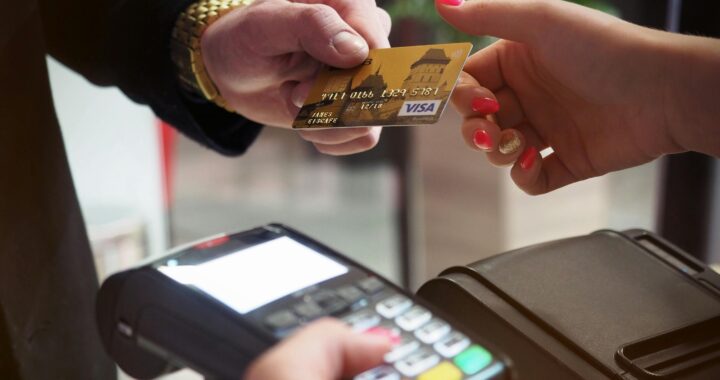Article Summary:
How Credit Cards and Your Credit Score Are Connected
Before Applying For a Credit Card
Types of Credit Cards
Credit Cards vs. Debit Cards
FAQs About Credit Cards and Credit Scores
Case Study: Rebuilding Credit with a Secured Card
You’re balancing the responsibilities of homeownership, raising a family, and managing a demanding career. Life feels full, but the financial pressure is constant.
You’ve worked hard to create a stable foundation, but then the unexpected strikes—a costly home repair, unforeseen medical expenses, or the mounting cost of your kids’ post-secondary education. Before you know it, your carefully planned budget spirals out of control.
You’re not alone.
Ideally, an emergency fund would be available to cover these unexpected costs, but with the rising cost of living this feels unattainable for many.
Many Canadians find themselves facing financial stress. For some, the solution may be building credit or repairing a damaged credit history to regain stability. This is where credit cards, when used wisely, can help.
Using a credit card responsibly—keeping your balance low, paying your bills on time, and choosing a card that aligns with your financial goals—can help you rebuild your credit score and lay a stronger financial foundation. But the key is to approach credit strategically, avoiding pitfalls like carrying high balances or missing payments, which can lead to more significant challenges.
This guide will walk you through the types of credit cards available and how they can impact your financial future, giving you the tools to make informed decisions for the road ahead.
Credit Cards are not the only option to build your credit
While credit cards can help you build credit back up they are not the only option. Credit Builder Loans, proper management of phone and utility bills, reporting your rent, RRSP loans, and maintaining current accounts can all support a positive movement for your credit.
How Credit Cards and Your Credit Score Are Connected
Credit cards can significantly impact your financial health positively and negatively. Here’s how credit cards and credit scores are connected:
- Payment History: Paying on time is the most important factor affecting your credit score. Late payments can hurt your score for years.
- Credit Utilization: Keeping your balance low relative to your credit limit improves your credit score.
- Credit History Length: The longer you responsibly use credit, the better it reflects on your score.
When managed wisely, credit cards can help you build a good credit score and achieve long-term financial stability.
Before Applying For a Credit Card
Before applying for credit cards, especially after a bankruptcy or consumer proposal, consider your strengths, weaknesses and personality. If you know that credit cards are a temptation for you to overspend, consider avoiding them all together – use a prepaid card for those times when a credit card is needed, such as online shopping – or stick with one low limit secured card.
Other tactics to keep your spending in check:
- Ask a trusted family member or friend to hold on to your card and only let you use it under specific circumstances or up to a specific dollar amount
- Freeze the card in a container of water so that you’ll have time to consider how necessary your purchase is while thawing it out
- Not storing your credit card in your wallet so that it’s not automatically with you when you’re out and about
- Do some soul searching around your spending habits and discover the ‘why’ of it for you – what makes overspending so tempting, how does it make you feel both during the purchase and after, when reality hits?
Types of Credit Cards
There are many types of credit cards, each designed for specific needs. Understanding the features of each can help you make an informed decision.

| Card Type | Best For | Key Benefits | Considerations |
|---|---|---|---|
| Secured Credit Cards | New or rebuilding credit | Helps establish credit history, refundable security deposit, reports to credit bureaus | Requires an upfront deposit; lower credit limits. Ideal for credit building but not for large purchases. |
| Prepaid Credit Cards | Purchases that require a credit card, i.e., online purchases, when one is not available | Impossible to accumulate debt as only funds loaded onto the card can be spent. | As there is no borrowing involved, a prepaid credit card does not build your credit score. |
| Student Credit Cards | College students | Educational resources, lower limits, introductory rewards programs | Limited credit limits; requires proof of enrollment or student status. |
| Low-Interest Cards | Carrying balances | Lower APRs save on interest costs for long-term balances | Fewer rewards compared to other cards; ideal for debt management rather than earning perks. |
| Store Credit Cards | Loyal shoppers | Exclusive discounts, rewards, and financing offers at specific retailers | Often limited to store use; typically higher interest rates than general-purpose cards. |
| Balance Transfer Cards | Consolidating high-interest debt | 0% introductory APR for balance transfers, reduces interest costs | Balance transfer fees may apply; promotional APR period is temporary. |
| Cash Back Cards | Everyday spenders | Earns a percentage of purchases back as cash, easy redemption options | Best for those who don’t carry a balance; not ideal for building credit if overused or balances accumulate. |
| Travel Credit Cards | Frequent travelers | Earns miles or points for flights, hotels, and travel-related expenses, includes travel perks | Often includes an annual fee; rewards are specific to travel and may require loyalty to certain brands. |
| Business Credit Cards | Small business owners | Tracks expenses, earns rewards on business purchases, offers higher limits | Requires a business or self-employment; mixing personal and business expenses can complicate accounting. |
*APR = Annual percentage rate
Credit Cards vs. Debit Cards

While they may look similar, credit cards and debit cards serve very different purposes:
Debit Cards: Pull money directly from your bank account. They don’t impact your credit score since no borrowing is involved.
Credit Cards: Allow you to borrow money and repay it later. Payments affect your credit score.
If building or improving your credit score is your goal, credit cards are the better option.
Choosing the Right Card for You
The best credit card for you depends on your financial goals and habits. Here’s how to choose:
- To Build Credit: Opt for a secured or student credit card.
- To Earn Rewards: Choose a cashback or travel rewards card.
- To Manage Debt: Look for a balance transfer card with a low introductory APR.
- For Frequent Shoppers: A store credit card can offer valuable discounts and perks.
FAQs About Credit Cards and Credit Scores
1. What happens if I don’t pay my credit card on time?
Late payments can hurt your credit score and result in late fees or higher interest rates.
2. Can debit cards improve my credit score?
No, debit cards don’t impact your credit since they’re tied to your bank account and not a credit line.
3. What’s the best credit card for building credit?
A secured account is often the best choice for building a strong credit foundation.
4. How do secured vs. unsecured credit cards affect my credit?
Both can improve your credit score, but secured cards are easier to qualify for if you’re starting out or rebuilding credit.
5. How can I improve my credit score with a credit card?
Pay your bills on time, keep your balances low, and avoid applying for too many cards at once.
Case Study: Rebuilding Credit with a Secured Card
After years of struggling with credit card debt, Maria decided to start fresh with a secured credit card. She deposited $500 to open the account, using it responsibly for everyday purchases and paying the balance in full each month. Over 12 months, her credit score improved by 100 points, allowing her to qualify for an unsecured rewards card. This small step helped Maria regain financial stability.
Looking to learn more? Check out our guide on How to Rebuild Your Credit After Debt for actionable tips to improve your financial picture.
Careful Considerations
While credit cards can be a powerful tool to build your credit, they come with risks that shouldn’t be overlooked. If not used responsibly, they can quickly lead to further financial difficulties.
Credit cards might not be the best choice for everyone due to several risks. High-interest rates can quickly accumulate if you carry a balance, making it harder to pay down debt and harming your credit score.
The temptation to overspend is also significant, especially with high credit limits that can lead to financial strain.
Carrying a high balance relative to your credit limit can negatively impact your credit utilization, a key factor in credit scoring.
Late payments can be costly, resulting in fees, higher interest rates, and a major drop in your credit score that can take years to recover.
Hidden fees like annual fees, balance transfer fees, and foreign transaction fees can also erode your budget.
Worse, irresponsible use of credit cards can create a debt spiral that’s hard to escape, with long-term consequences like bankruptcy.
Want to learn more? We have an article on How to Understand, Improve, and Maintain Your Credit Score in Canada.
If you’re unsure about managing credit cards responsibly, consider alternatives like credit builder loans, paying utilities on time, or speak to you Licensed Insolvency Trustee or financial advisor for further support.
